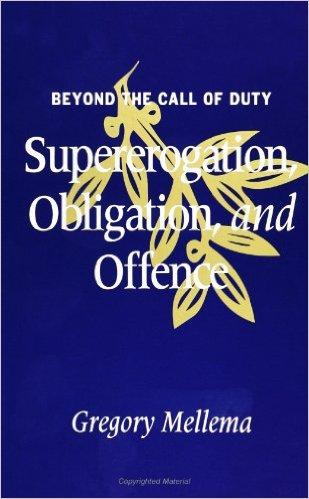Beyond the Call of Duty

A surprisingly large number of people have denied that it is possible for human moral agents to act in such a way as to go beyond or transcend what moral duty or obligation requires of them. Some of this opposition to the possibility of supererogation, as it is called, has been motivated by theological concerns. This book surveys the concerns of Luther, Calvin, and Melanchthon, as they react to certain teachings of the Roman Catholic Church, as well as the concerns of several contemporary theologians. It also examines some contemporary philosophers whose concerns have grown out of a commitment to a Kantian, utilitarian, or prescriptive type of ethics and urges that there are valuable lessons to be learned from these theologians and philosophers. At the same time it is argued that some of their concerns are the result of a mistaken idea of what it means to perform an act of supererogation. In addition, it is argued that some of their concerns can be addressed in ways that do not require a denial of the possibility of going beyond the call of duty in human life. This stage of the argument involves a discussion of virtue ethics and an examination of the concept of vocation, particularly as it has developed in Protestant thought, and illustrates the relevance of virtue and vocation to the problem of supererogation.






